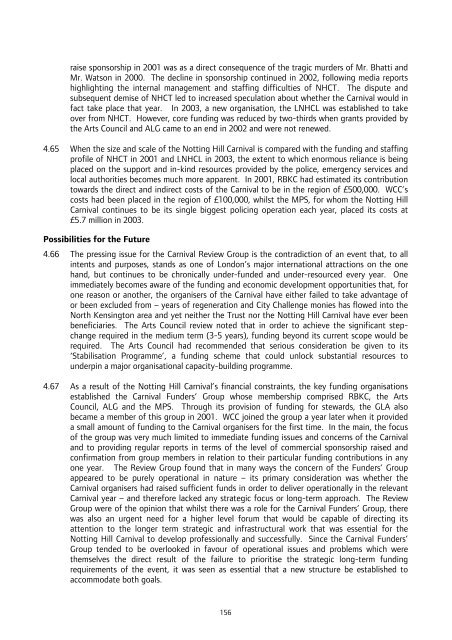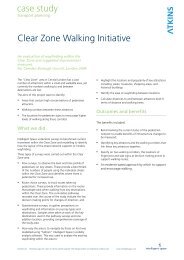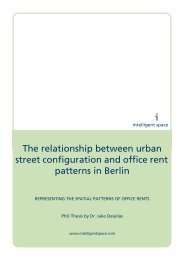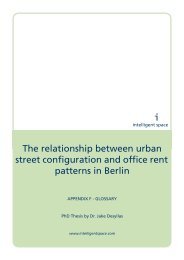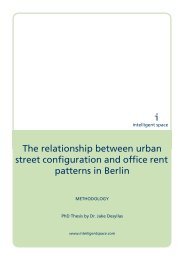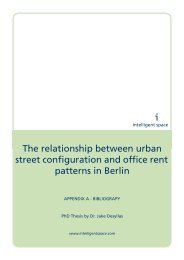Notting Hill Carnival Strategic Review - Intelligent Space
Notting Hill Carnival Strategic Review - Intelligent Space
Notting Hill Carnival Strategic Review - Intelligent Space
Create successful ePaper yourself
Turn your PDF publications into a flip-book with our unique Google optimized e-Paper software.
aise sponsorship in 2001 was as a direct consequence of the tragic murders of Mr. Bhatti and<br />
Mr. Watson in 2000. The decline in sponsorship continued in 2002, following media reports<br />
highlighting the internal management and staffing difficulties of NHCT. The dispute and<br />
subsequent demise of NHCT led to increased speculation about whether the <strong>Carnival</strong> would in<br />
fact take place that year. In 2003, a new organisation, the LNHCL was established to take<br />
over from NHCT. However, core funding was reduced by two-thirds when grants provided by<br />
the Arts Council and ALG came to an end in 2002 and were not renewed.<br />
4.65 When the size and scale of the <strong>Notting</strong> <strong>Hill</strong> <strong>Carnival</strong> is compared with the funding and staffing<br />
profile of NHCT in 2001 and LNHCL in 2003, the extent to which enormous reliance is being<br />
placed on the support and in-kind resources provided by the police, emergency services and<br />
local authorities becomes much more apparent. In 2001, RBKC had estimated its contribution<br />
towards the direct and indirect costs of the <strong>Carnival</strong> to be in the region of £500,000. WCC’s<br />
costs had been placed in the region of £100,000, whilst the MPS, for whom the <strong>Notting</strong> <strong>Hill</strong><br />
<strong>Carnival</strong> continues to be its single biggest policing operation each year, placed its costs at<br />
£5.7 million in 2003.<br />
Possibilities for the Future<br />
4.66 The pressing issue for the <strong>Carnival</strong> <strong>Review</strong> Group is the contradiction of an event that, to all<br />
intents and purposes, stands as one of London’s major international attractions on the one<br />
hand, but continues to be chronically under-funded and under-resourced every year. One<br />
immediately becomes aware of the funding and economic development opportunities that, for<br />
one reason or another, the organisers of the <strong>Carnival</strong> have either failed to take advantage of<br />
or been excluded from – years of regeneration and City Challenge monies has flowed into the<br />
North Kensington area and yet neither the Trust nor the <strong>Notting</strong> <strong>Hill</strong> <strong>Carnival</strong> have ever been<br />
beneficiaries. The Arts Council review noted that in order to achieve the significant stepchange<br />
required in the medium term (3-5 years), funding beyond its current scope would be<br />
required. The Arts Council had recommended that serious consideration be given to its<br />
‘Stabilisation Programme’, a funding scheme that could unlock substantial resources to<br />
underpin a major organisational capacity-building programme.<br />
4.67 As a result of the <strong>Notting</strong> <strong>Hill</strong> <strong>Carnival</strong>’s financial constraints, the key funding organisations<br />
established the <strong>Carnival</strong> Funders’ Group whose membership comprised RBKC, the Arts<br />
Council, ALG and the MPS. Through its provision of funding for stewards, the GLA also<br />
became a member of this group in 2001. WCC joined the group a year later when it provided<br />
a small amount of funding to the <strong>Carnival</strong> organisers for the first time. In the main, the focus<br />
of the group was very much limited to immediate funding issues and concerns of the <strong>Carnival</strong><br />
and to providing regular reports in terms of the level of commercial sponsorship raised and<br />
confirmation from group members in relation to their particular funding contributions in any<br />
one year. The <strong>Review</strong> Group found that in many ways the concern of the Funders’ Group<br />
appeared to be purely operational in nature – its primary consideration was whether the<br />
<strong>Carnival</strong> organisers had raised sufficient funds in order to deliver operationally in the relevant<br />
<strong>Carnival</strong> year – and therefore lacked any strategic focus or long-term approach. The <strong>Review</strong><br />
Group were of the opinion that whilst there was a role for the <strong>Carnival</strong> Funders’ Group, there<br />
was also an urgent need for a higher level forum that would be capable of directing its<br />
attention to the longer term strategic and infrastructural work that was essential for the<br />
<strong>Notting</strong> <strong>Hill</strong> <strong>Carnival</strong> to develop professionally and successfully. Since the <strong>Carnival</strong> Funders’<br />
Group tended to be overlooked in favour of operational issues and problems which were<br />
themselves the direct result of the failure to prioritise the strategic long-term funding<br />
requirements of the event, it was seen as essential that a new structure be established to<br />
accommodate both goals.<br />
156


